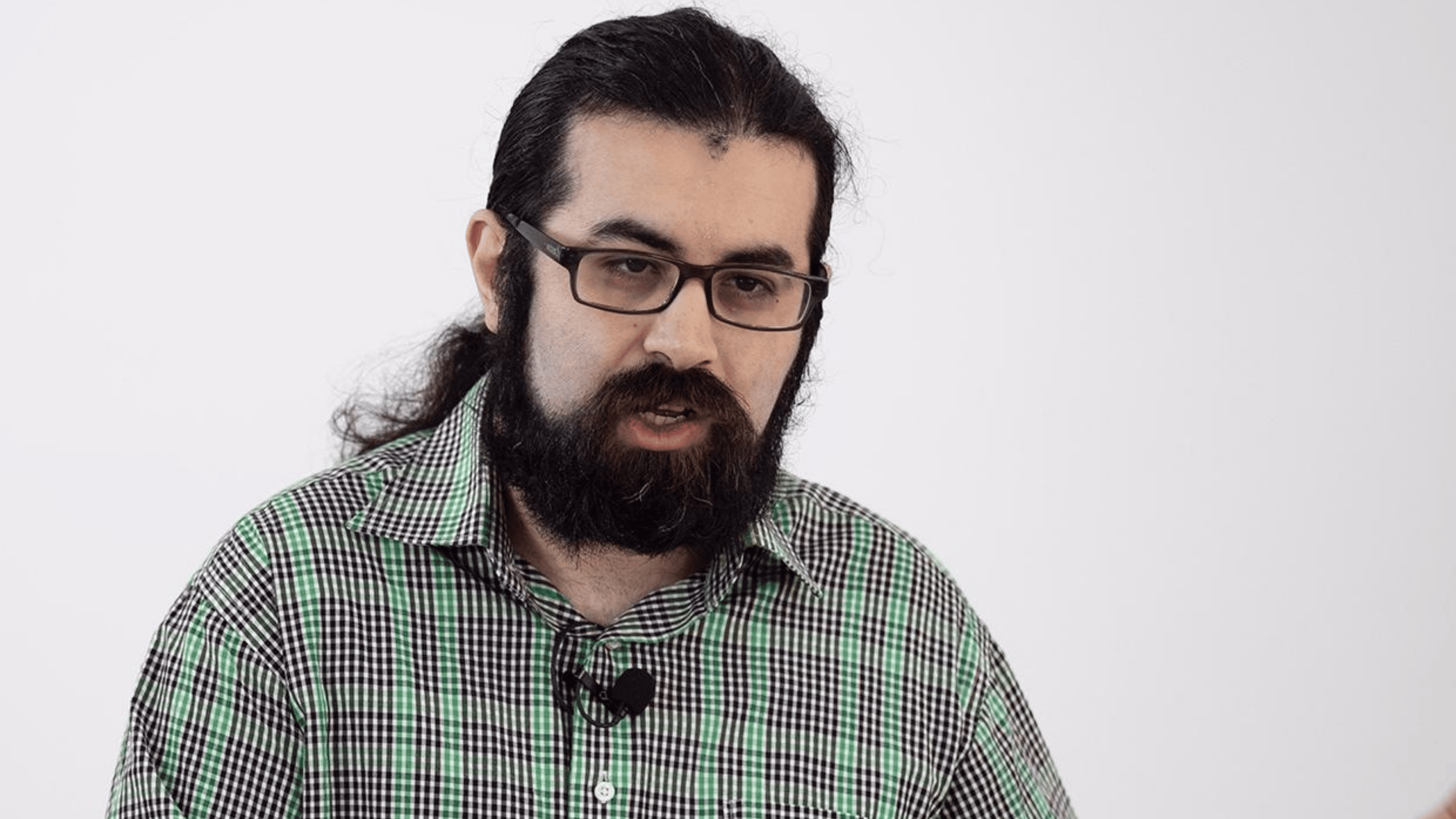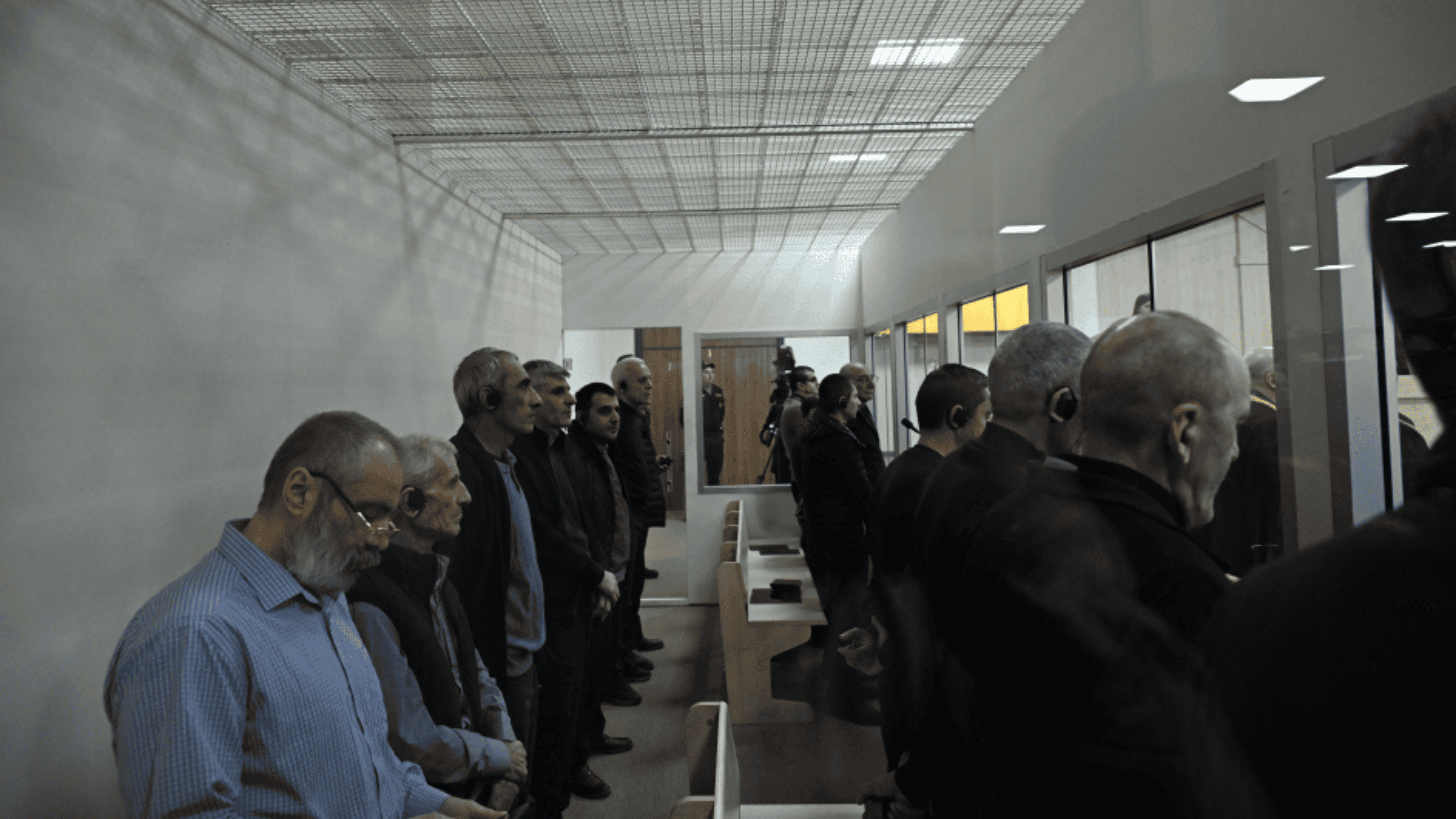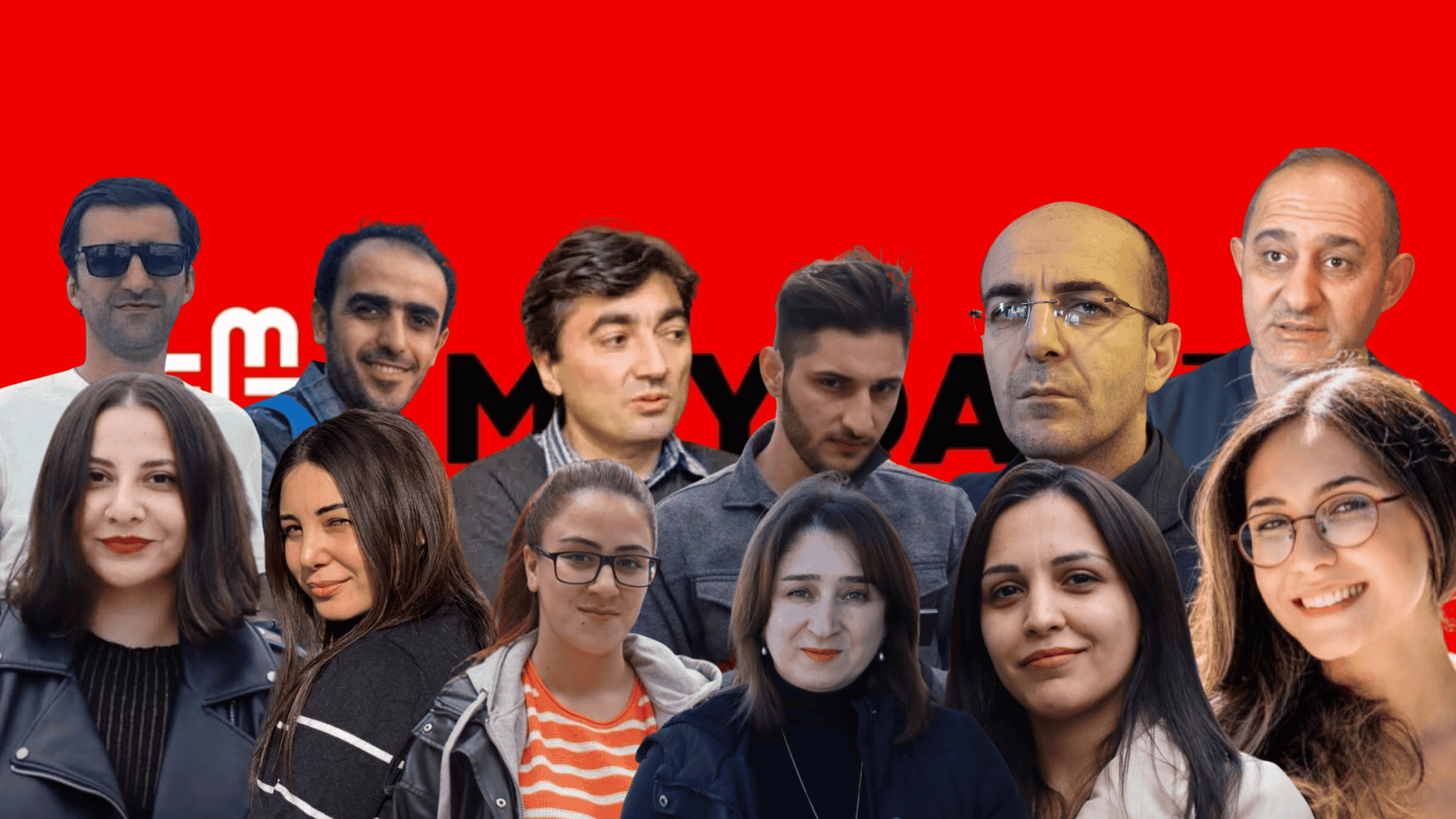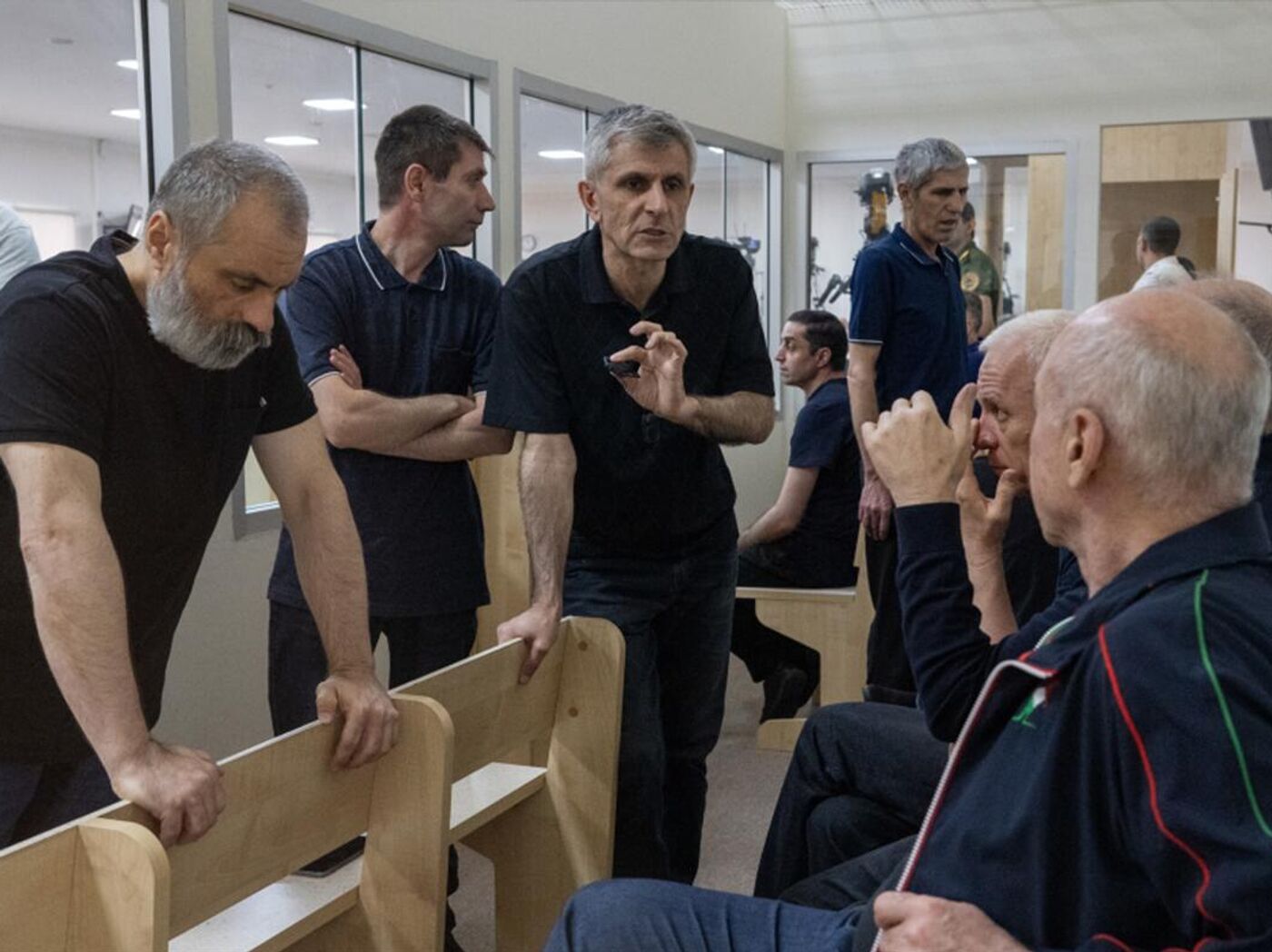Shongar: Village outside Baku without school, clinic, or park
Shongar residents demand local school
There is only one bus route, number 126, to the village of Shongar in the Garadagh district, located 30 kilometers from Baku. Dirty and broken buses departing from the Elite shopping center in the Darnagul area take about two hours to reach the village. The intervals between buses at the stops are also very long.
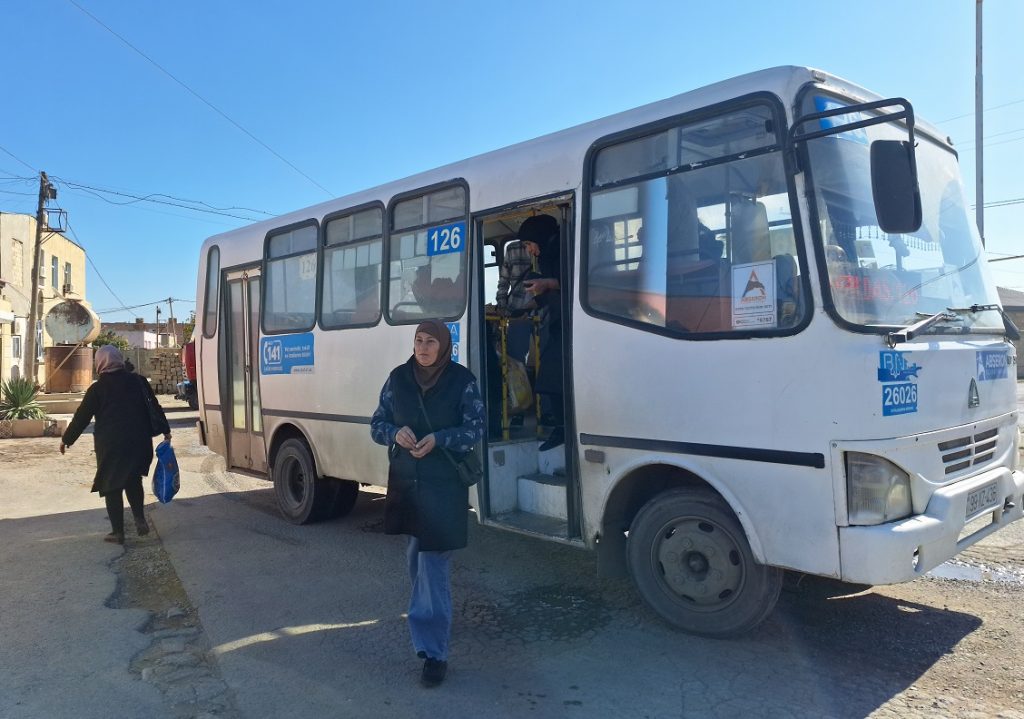
The first thing you see upon entering the village are the stone quarries. Shongar residents mostly make a living working in these quarries or at the Sadarak and Bina markets in the neighboring village of Lokbatan.
Shongar has no school, kindergarten, medical center, pharmacy, or park—in short, none of the infrastructure that any settlement should have.
According to residents, there are also problems with the water supply. Water supply interruptions are frequent, and sometimes residents are left without this “source of life” for days.
“If you knock on any door in the village, everyone will talk about different problems. The village feels like a godforsaken place. Government agencies show no interest in our problems and ignore our complaints. Aside from the main road, there is no asphalt anywhere in the village,” laments one Shongar resident.
Children deprived of education, desperate parents
There is a small shop in the center of the village. Residents say that there isn’t a single family in Shongar without at least one member whose name is written in the shop’s “debt notebook.” People buy groceries on credit.
The money they earn doesn’t allow them or their families to live at least one carefree day. Every day, Shongar residents gather near the bus stop in front of this small shop to discuss the endless problems of their daily lives.
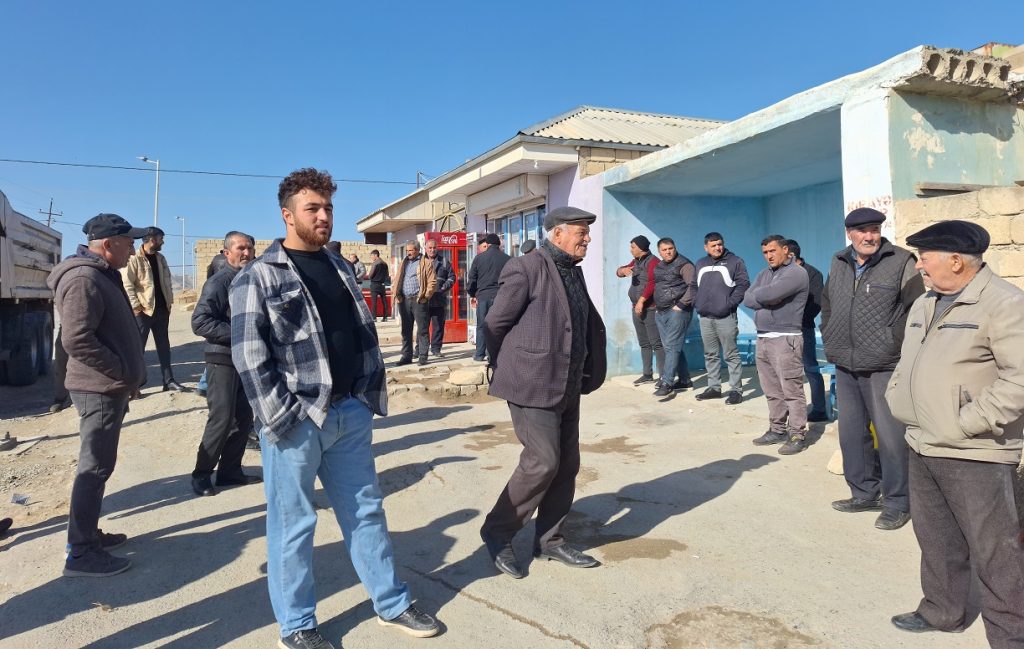
But today, there are especially many people in front of the shop. A desperate crowd is gathered to protest. According to participants, they haven’t been able to send their children to school for two weeks. The reason is that village residents cannot afford transportation costs for their school-aged children.
Around 300 school-aged children live in the village, but there is no school here. For more than twenty years, children from Shongar have had to travel to School No. 180 in the neighboring village of Gyzyl Dash, located several kilometers away.
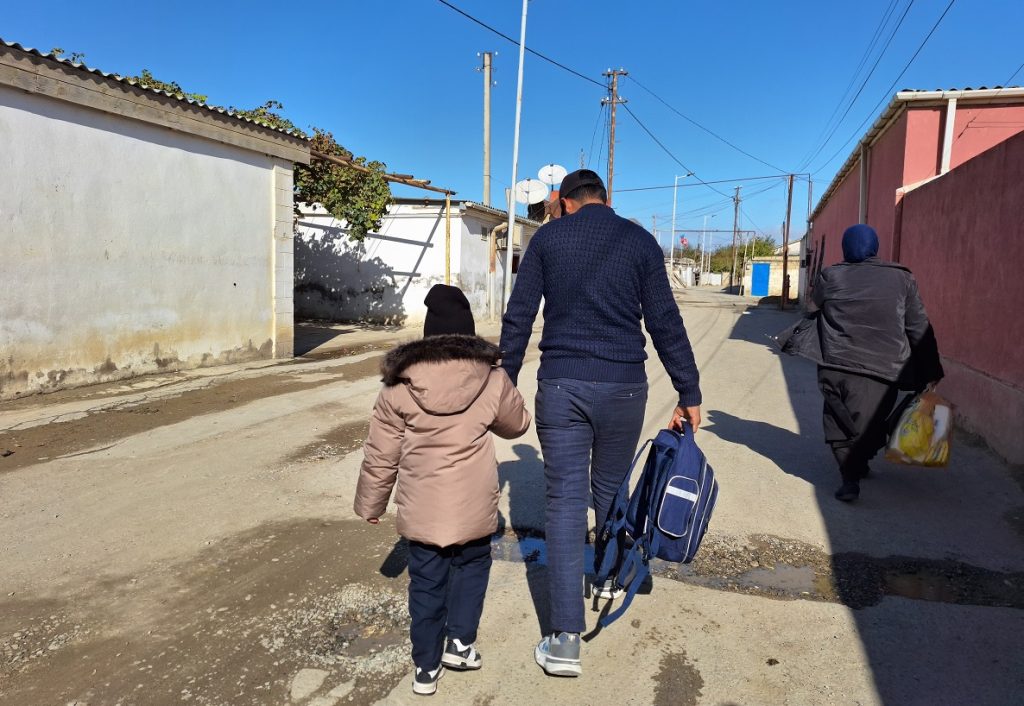
A month ago, bus drivers on the route from Shongar to Gyzyl Dash did not charge schoolchildren for the ride. However, drivers now say that this is no longer possible due to increased fuel and fare costs, and they are forced to charge children as well.
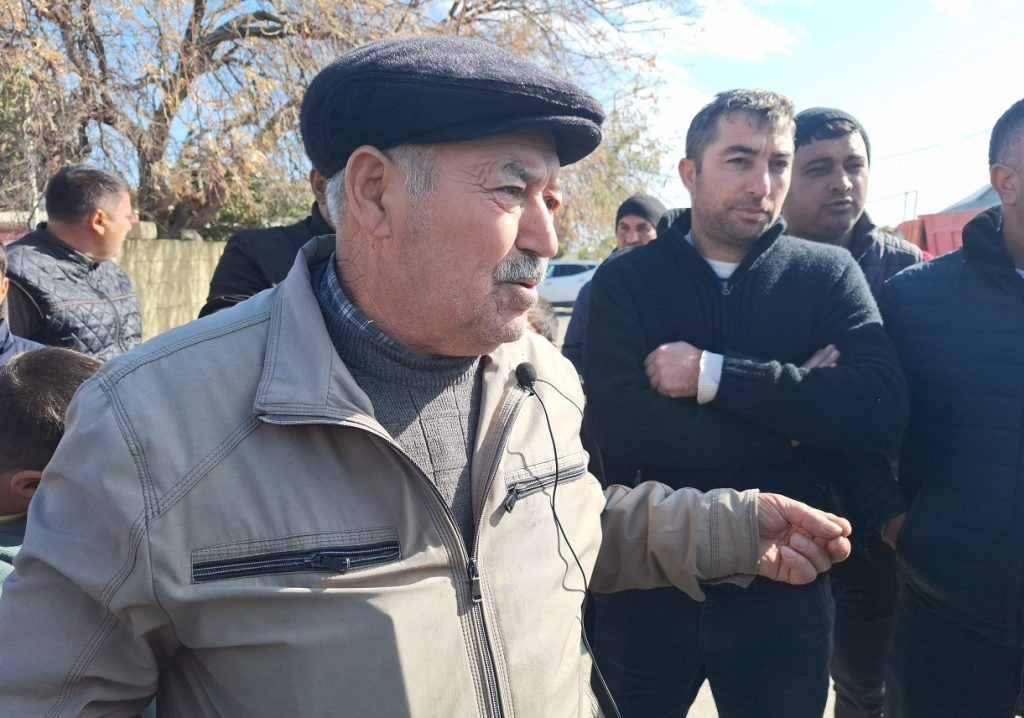
“Each family has at least two or three children going to school. And parents have to travel with them as well. How much can we spend on transportation every day? How can people who work in the quarries and haul carts at the market afford this?” says Nabi Muradov, an elderly resident of the village.
Another resident, Elnur Rzayev, also cannot send his child to school because he lacks the money. He says that if a school were built in Shongar, transportation issues would no longer be a problem.

“My child is now out on the street, missing classes. They’re missing school because our budget doesn’t allow it—I’d have to pay 100-150 manats [about $58-88] per month just for transport to send my child to school. We don’t expect free bus rides. Let them build a school in the village. There’s no kindergarten, but we’re not even asking for that—at least let there be a school. We’ve suffered from this issue for years. Suppose we send the kids to school on foot. What will happen when it rains or snows?” says Rzayev.
Soon, Imran Hasanov, the head of the Garadagh District Executive Authority’s department, approaches the crowd, accompanied by the police. Hasanov says that the executive authority does not have the power to build schools or kindergartens, and only the Ministry of Science and Education can resolve the issue. According to the response from the executive authority’s inquiry to the ministry, it can be assumed that the construction of a school in Shongar is not planned in the near future.
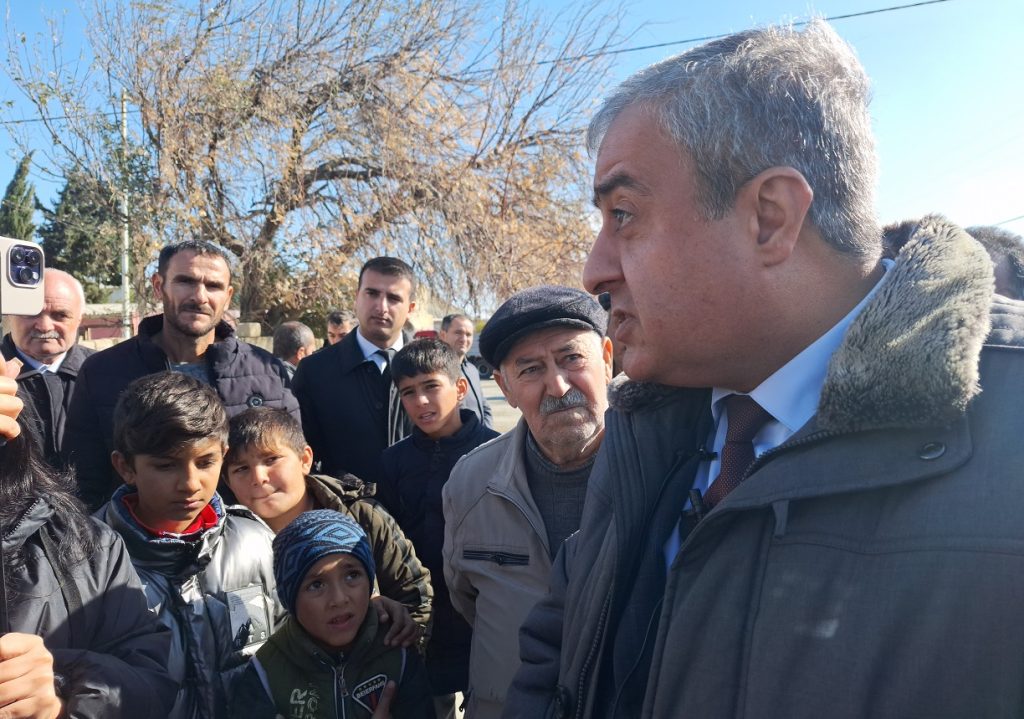
“Our residents have repeatedly raised this issue. We also sent a letter to the Ministry of Education, and I will now read their response to you. It states that since the funds allocated to the ministry for investment expenses from the 2023 state budget have already been directed to specific projects, these issues will be considered as part of upcoming state investment programs,” read Imran Hasanov from the Ministry of Education’s response.
No school built in Shongar in 20-25 years
In the last 20-25 years, the government has not built a single school in Shongar. In 2009, the British oil company BP built a four-year primary school in the village, but it operated for only four years. In a short time, the school building fell into disrepair, and classes were suspended.
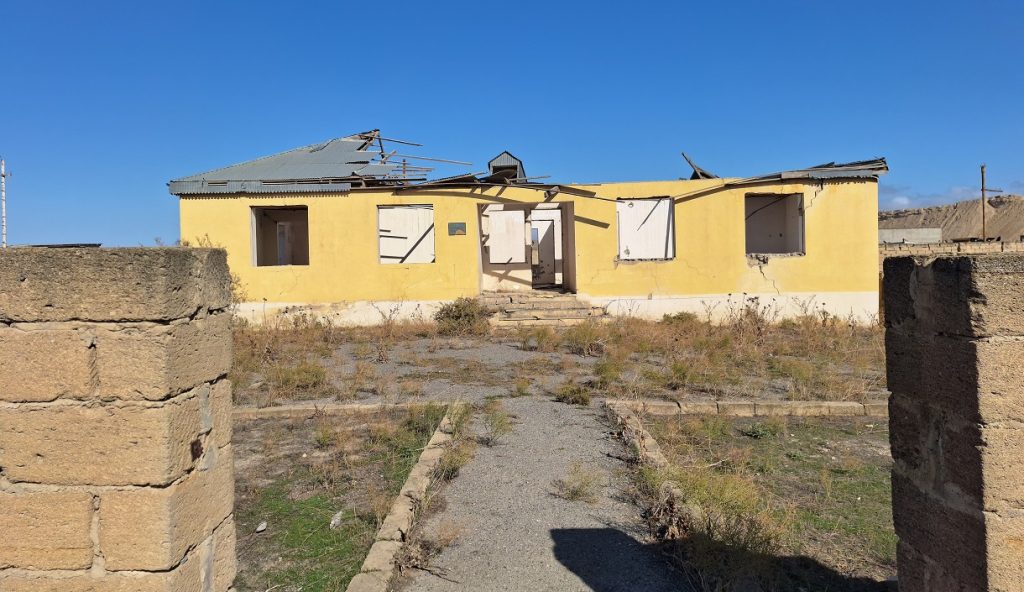
According to the state program for the socio-economic development of Baku and its settlements for 2014-2016, the construction of a secondary school with 196 seats was planned in the village of Shongar, but this commitment has yet to be fulfilled.
From time to time, residents have raised the issue of the school. Two years ago, when they protested about it, a representative of the Garadagh District Executive Authority stated, as they do now, that they had appealed to the Ministry of Education and Science on this matter.
At that time, the Baku City Education Department told the press that if there was a pressing need for a school in Shongar, the issue could be considered accordingly. But since then, nothing has changed.
‘I lost my father and mother because they didn’t receive medical help in time’
Forty-two-year-old Zakir Nasirov was born and raised in the village of Shongar. He now lives here with his wife, two daughters, and son. He says that since his childhood, the same issues have been on the agenda in Shongar—school, kindergarten, clinic, roads, water, and unemployment.
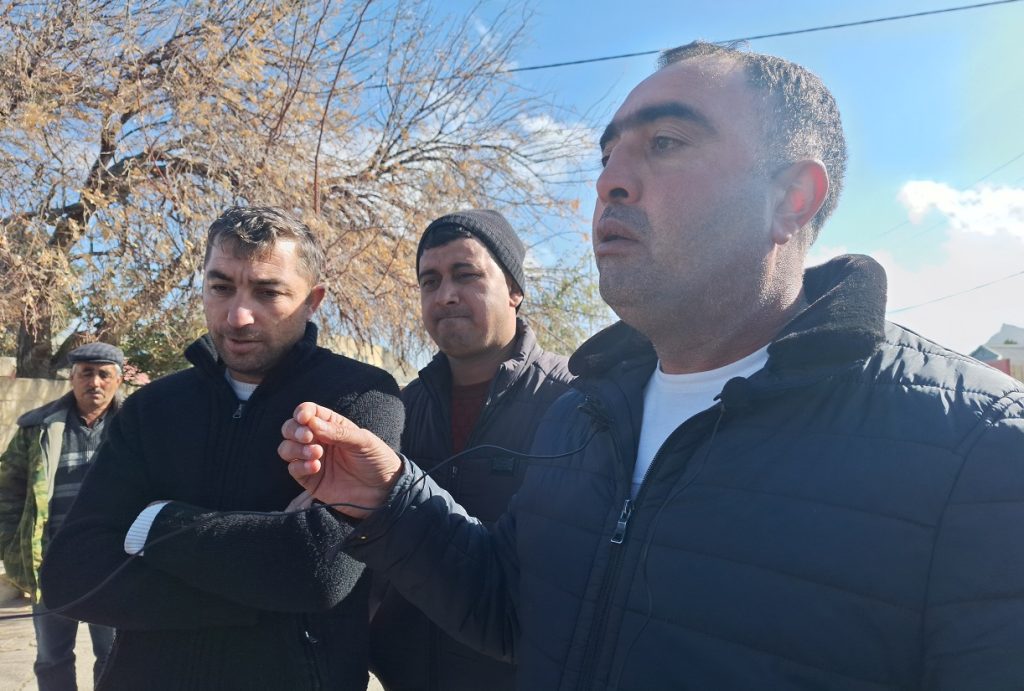
According to Zakir Nasirov, he lost his father and mother due to the lack of a medical center.
“If someone gets sick, falls, or is injured, there’s no one to help. I lost my father and mother because they didn’t receive medical assistance in time. A few years ago, when my father’s health, and then my mother’s, worsened, the ambulance didn’t come. We couldn’t get them to a hospital in one of the nearby settlements in time, so both of them died. In this village, you can’t afford to get sick. And if you do, you just wait for death,” says Nasirov.
‘I want to become a computer engineer, but I can’t go to school’
The main concern for Zakir Nasirov and his wife now is that their children are being deprived of an education.
“I’m a laborer. Some months, I can’t even earn 300 manats [about $176]. What should I spend that money on—clothing, food, or transportation for three kids? It’s never enough. My children are very good students, and now they haven’t been able to attend classes for two weeks, falling behind in their lessons. They’re turning our children into ignorant people,” Nasirov laments.
His daughter Fidan, 16, is in the 10th grade. She is worried that as she misses school, she will fall behind in the curriculum, and her grades will suffer.

“Staying away from school is, of course, very upsetting for me. I’m missing classes, I have final exams coming up, and my grades will go down. I’m preparing for the first group of university entrance exams, and I dream of becoming a computer engineer. Now, with us not going to school, it’s going to be very difficult for me. Our principal came here to find out why we aren’t attending classes. We explained the reason, but he still insists that we go to school. But how? We don’t know. My sister is in the 9th grade, and my brother is in the 5th grade. All three of us are very worried,” says Fidan.
Shongar residents demand local school














